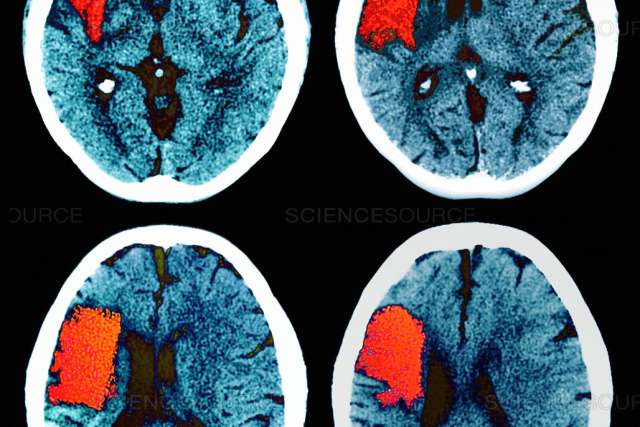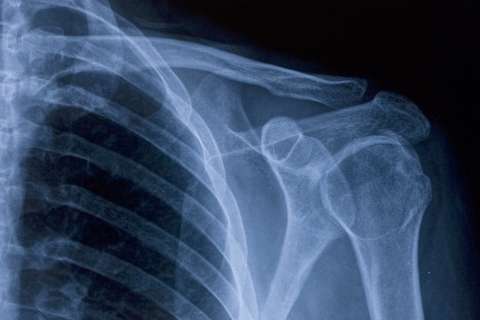Stroke and dementia are two of the most common neurological disorders, and increasingly researchers are recognizing the link between the conditions.
Dementia is characterized by a loss of cognitive function, including problems remembering, reasoning and concentrating. Though an estimated third of people age 85 and older suffer from the condition, it is not an inevitable part of aging.
Stroke, which is the leading cause of serious long-term disability, occurs when blood supply to the brain is blocked or a blood vessel bursts. A stroke greatly increases a person’s risk of developing dementia.
“What isn’t clear is whether the diseases occur in parallel with each other, or whether they intersect at the basic, molecular pathway levels in the brain,” said Jason Hinman, MD, PhD, associate professor and vice chair of research in the Department of Neurology at UCLA.
“There may be underlying molecular changes that are happening with age that raise the risk of stroke while also raising the risk of neurodegeneration and dementia.”
In the Hinman Lab, researchers are leading studies at the bench and in the clinic to understand the interface between the two diseases. The implications are twofold, Dr. Hinman says: “Identifying the molecular pathways that drive stroke and dementia can both improve diagnostic accuracy, and, hopefully, allow us to design new therapies to treat both disorders.”
Risk factors
As a part of the national DISCOVERY (Determinants of Incident Stroke Cognitive Outcomes and Vascular Effects on Recovery) Network, Dr. Hinman and colleagues are studying the risk factors after stroke that can ultimately lead to cognitive decline and dementia.
The DISCOVERY network includes 30 clinical sites across the United States. Patients who have suffered from ischemic (when blood supply to the brain is interrupted) or hemorrhagic (when a blood vessel ruptures) stroke are eligible for the study. They are followed for a minimum of two years, undergoing cognitive evaluations, MRI and PET scans, as well as genetic and fluid biomarker testing.
At UCLA, Dr. Hinman and colleagues are specifically focusing on identifying blood biomarkers that could be linked to long-term cognitive symptoms. They are seeking to predominantly enroll African American and Latino patients into the study, since most of the scientific literature on stroke and dementia risk has focused on white populations, Dr. Hinman says.
Pinpointing pathways that could be connected to severe cognitive symptoms could have a critical impact on long-term medical care for stroke patients.
“Stroke can be a life-changing event, and oftentimes, there is a focus on the most immediate changes that happen,” he says. “We want to understand and help to prevent the more long-term, potentially catastrophic consequences.”
Clinical studies
In addition to the DISCOVERY Network, the Hinman Lab is also part of a NIH-funded consortium of academic medical centers, called MarkVCID, which also focuses on studying the vascular drivers of cognitive impairment.
A recent clinical study from the consortium, led by Dr. Hinman, found that patients with cerebral small vessel disease who had higher levels of placental growth factor (PlGF) — a key molecule involved in the formation of new blood vessels — were more likely to have cognitive impairment or evidence of vascular brain injury. The findings were published in Alzheimer's & Dementia: The Journal of the Alzheimer's Association in February 2023.
The Hinman Lab is also mirroring these clinical studies in the laboratory, using animal models to study how the introduction of a stroke affects the pathogenesis of other neurodegenerative diseases, like Alzheimer’s.
In a study published in 2019, Dr. Hinman and a research team identified that stroke located in the deep white matter of the brain activates an enzyme called Mark4. The researchers identified that Mark4 drives the aggregation of tau — the protein that helps to stabilize neurons. An overaccumulation of abnormal tau in the brain has been linked to Alzheimer’s.
From the study findings, the Hinman Lab is collaborating with other UCLA researchers to identify new drugs to modulate that enzyme, reduce the accumulation of tau, and potentially ward off symptoms of dementia.
The clinical and basic science research could importantly help to inform which patients may be good candidates for new Alzheimer’s drugs that have recently received approval from the U.S. Food and Drug Administration and are making their way to market.
“Understanding the interaction between vascular disease and dementia will help us better determine who should be getting these treatments,” Dr. Hinman says, “so that those who need them most are getting them safely, and they are maximally effective.”
Lauren Ingeno is the author of this article.




